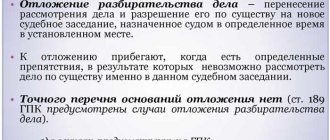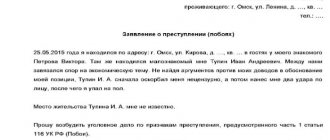Characteristics and tasks
A special procedure is an alternative procedure, much simpler than the usual one, applied exclusively by the courts of first instance.
The technique is used in two situations:
- If the maximum term of imprisonment for the crime committed under the article is no more than 10 years.
- There is a pre-trial agreement with the accused to cooperate with the investigation.
During the investigation, the same final goal is set - to determine the degree of guilt of the suspect. However, according to the standard scheme, a lot of time passes before the result is achieved, sometimes more than one year. When applying a special order of consideration, some stages are omitted. Thus, the subtleties and nuances of breaking the law are not carefully examined.
Reduction occurs only in agreement with:
- the accused individual;
- the oppressed side;
- prosecutor.
Key production tasks include:
- Facilitation of litigation in the courts of first instance.
- Speeding up actions at the stage of the prosecutor submitting the case to court.
- Reducing the burden on the judiciary.
Since the individual is ready to cooperate and does not deny his sin at all, the court has the right to examine the case without clearly establishing all the moments and essence of what happened. Thus, judges can pay more attention when considering the most intricate and complex criminal offenses.
Court hearing procedure
The consideration of criminal cases by courts in a special manner is regulated by Article 316 of the Code of Criminal Procedure of the Russian Federation. But it is worth keeping in mind some features. There are no clearly established rules in the law regarding the composition of the court that will conduct the trial. From a theoretical point of view, it is quite possible for the accused to make two motions. The first with a request for consideration in a special order, and the second - for a collegial hearing of the case, consisting of three federal judges, since such a composition has the prerogative of resolving criminal cases for serious crimes and especially serious ones (clause 3 of part 2 of article 31 of the Code of Criminal Procedure of the Russian Federation ). However, in reality such situations are rare. The consideration of criminal cases by courts in a special order can be used in accordance with the first part of Article 31 of the Code of Criminal Procedure of the Russian Federation by magistrates.
The court hearing is held in the mode that is established in the court of first instance for the consideration and resolution of a criminal case, that is, in general, except for a number of features. Firstly, the participation of the accused and his defense attorney or lawyer is mandatory and necessary. In this case, the rule established by the Criminal Procedure Code of the Russian Federation in the fourth part of Article 247 does not apply. It speaks of the possibility of holding a court hearing in cases of medium or minor gravity without the participation of the accused, if a petition has been filed on his part. A private or public prosecutor also necessarily takes part; he speaks at the very beginning and outlines the essence of the accusation being brought.
Next, the court questions the defendant regarding the understandability of what he is accused of and his consent to it. The question is asked about the support of the previously stated petition. If the presence of the injured person is ensured, then he is asked a similar question. In the event of his absence, the judge must make sure that he is notified of when the trial will take place (Code of Criminal Procedure of the Russian Federation), namely the time, place, and also that there are no motions on his part against the request made by the defendant.
As part of this procedure, research into the correctness of the procedure as a general rule is not carried out. This can only be done in relation to circumstances that give an idea of the personality of the defendant, as well as aggravating or mitigating the punishment. The fact that he agrees with the accusation against him does not mean that the court studied the criminal case and the evidence contained in it less carefully.
Circumstances of application
Chapters 40 and 41 of the Code of Criminal Procedure of the Russian Federation regulate the subtleties and procedures for using special proceedings.
According to their provisions, the key circumstances for the appointment of such a review of the case are:
- obtaining written approval from the victim;
- lack of protest from the prosecution;
- after a conversation with a human rights defender, the suspect also submits a request for simplification;
- the maximum term of imprisonment under the imputed article does not exceed 10 years (for example, under Part 1 of Article 318 of the Criminal Code of the Russian Federation, violence against a representative of the authorities);
- the accused is aware of the restrictions due to the use of the simplified procedure;
- there are no factors in the case for its termination;
- the prosecutor has collected comprehensive evidence of the defendant’s guilt;
- recording in the text of the document information about methods of cooperation with the investigation;
- the suspects are not minors (the case against them is always considered in the generally accepted manner).
ATTENTION !!! Subsequently, the sentencing is based on the arguments of the prosecutor's office. The latter submits to the court a detailed presentation with the indictment on the basis of an agreement on the cooperation of the accused with the investigation.
The document states:
- The degree and nature of participation in facilitating the detection of a criminal act that is charged to a person.
- The presence or absence of danger to the identity of the suspect during the investigation procedure.
- The number of identified violations of the law, according to the individual.
The supervisory authority is given three days to issue a conclusion on the application or non-application of the simplified procedure. This is possible only if one recognizes one’s own guilt and the imputed article as a criminal element.
Special procedure for considering a criminal case: what is it?
The criminal process involves competition between the prosecution and defense. The goal is to find out whether the defendant is guilty of a specific crime.
This is one of the differences from civil proceedings: the latter may not be adversarial (writ proceedings), and it does not matter here whether you are really guilty or not. If you want to satisfy the plaintiff’s demands, even if you simply don’t want to argue, please, no one will interfere.
In legal proceedings regulated by the rules of the Code of Criminal Procedure, this is not the case: if you plead guilty, voluntarily taking on someone else’s guilt, the court will not pronounce a guilty verdict, not being sure of the fairness of such a decision. That is, the goal here is not to resolve the dispute, but rather to get to the bottom of the truth and assign a fair verdict (ideally).
Knowing this, it is easier to understand the phenomenon of the special procedure for considering a criminal case in the court of first instance, established in 2009 by Section 10 of the Criminal Procedure Code.
It is assumed that there are 2 procedures for entering into such proceedings: the consent of the accused with the charge brought against him and the conclusion of a pre-trial agreement on cooperation between the defense and prosecution (Chapters 40 and 40.1 of the Code of Criminal Procedure, respectively).
But the principle is the same: the accused admits his guilt (directly or indirectly, as in the case of a pre-trial agreement) in exchange for some mitigation of the sentence, which significantly facilitates and speeds up the work of the court and the burden on the judicial system as a whole.
The court does not delve into the details of the case, does not examine evidence and circumstances (except, for example, those that characterize the personality of the accused), since the parties refuse to compete.
That is why the consent of each party involved is important here. A special procedure in criminal cases does not apply to minors due to their incapacity. Also, in both cases, the defendant is exempt from paying court costs. To better understand how one procedure differs from another, we will consider each separately.
Stages of implementation in a special order
In the accelerated process of considering a criminal case, several stages can be distinguished:
- preparation for litigation. Before the start of the hearing, the judge records the fact that the accused has voluntarily consented to this type of consideration of the case, that he has received advice from a human rights activist on the nuances of the procedure, has the information and agreed to the conditions and consequences. If the judge concludes that there is a violation of legal requirements or establishes the fact of resistance by the accused or the state prosecutor, then the approval of the special order will be rejected. The investigation in this situation takes place within the usual framework;
- the court hearing itself. The specific composition of the court is not fixed at the legislative level. Therefore, there is a real situation when the accused person has the right to make two requests at the same time - to conduct the case in a special order and to consider it collectively;
- making a final verdict and appealing it. Consideration of a case in a special manner implies a guilty verdict, but Chapter 40 of the Code of Criminal Procedure of the Russian Federation also does not record any prohibition on a different decision. Therefore, in order to approve the final decision, the minister of justice must already have a clearly formed opinion about what happened, the involvement of the accused individual in the incident, the degree of his guilt and the evidence presented. This must be a confident inner conviction based on the information presented and the evidence base in the case.
ATTENTION !!! If doubts still arise, the law enforcement officer undertakes to issue a decision to terminate the case within the framework of special legal proceedings.
Then a general hearing is scheduled, during which the evidence provided is carefully examined. After pronouncing the verdict, the judge explains to the guilty individual the procedure and deadlines for appealing.
When using a simpler review algorithm, mild measures of influence are usually applied to the guilty individual - the total period of punishment is reduced to 2/3.
As for restrictions, the legislator fixed the only thing in Art. 317 of the procedural code. An appeal on the grounds of dissonance between the judge’s generalizations specified in the final decision and the factual circumstances of the crime is not permitted.
Problems of applying special order in practice
If we abstract from modern realities, it may seem that consideration of a case in a simplified manner is an excellent opportunity for defendants to receive a sentence below the minimum amount established by the Criminal Code. As mentioned above, approximately 50% of criminal cases are considered in this order. But, if you think about it: how many defendants take such a step voluntarily? Of course, they are not forced under torture to submit a petition for consideration of the case in a free manner, but, realizing the futility of their situation, they voluntarily agree to this step. This is facilitated by the colorful description of life behind bars performed by law enforcement officials.
Not every person who is “designated” guilty is able to withstand such pressure. There is no doubt that innocent people are being investigated and then brought to trial. According to official statistics for the last three years, the number of such people is 15,000, but the real figure is higher.
In theory, a lawyer should be able to prevent consent to drawing up an application for consideration of a case in a simplified manner, but most Russians simply do not have the money to pay for his services, and the lawyer allocated by the state is not interested in the problems of the ward. The number of acquitted defendants does not greatly affect his salary.
Thus, we can confidently say that consideration of cases in a special order is not always an absolute benefit for the accused. This is rather an opportunity to reduce the pressure of the flywheel of domestic justice.
Rules for drawing up an agreement
At the pre-trial stage, a cooperation agreement is concluded with a person who is a suspect in the case.
To draw up and sign it, certain settings apply:
- The document is submitted by the person being called to account in writing, signed by a human rights activist or representative.
- The application is completed on time. From the beginning of criminal harassment to the completion of the preliminary investigation stage.
- Fixing in the text information about direct cooperation - what steps he undertakes to take to assist the investigative team, expose the identities of other defendants, and search for the victim’s embezzled property.
After filing the petition, the state prosecutor issues a ruling, which is subsequently sent to the court.
Advantages and disadvantages
In European countries, the practice of using the simplified procedure goes back more than one decade, but for Russia the procedure is considered not yet fully tested and needs serious transformations. In advance of approval of the procedure, it is recommended to calculate the existing pros and cons.
Positive aspects usually include:
- the possibility of mitigating the penalty, namely reducing the prison term by 1/3. Which is quite a significant and tangible preference for the culprit;
- more efficient and less time-consuming litigation. This makes it possible to facilitate the activities of the judicial apparatus and reduce the workload. Encourages the allocation of time for more serious offenses and their careful consideration. The period of detention for the defendant is shortened (after all, it is not a fact that the judge will choose a prison term).
Among the negative aspects are:
- The need for full recognition of involvement and guilt in the crime. In fact, absolute agreement with all the formulations made is implied.
- Prohibition on appeal regarding the factual circumstances of the incident. That is, it will not be possible to speak and prove the absence of guilt after a verdict is passed. You cannot first agree to the trial and admit all the charges, and then change your mind regarding the charges brought against you.
Thus, a special procedure has its own properties and characteristics and is applied exclusively with the consent of all parties to the process.
Consideration of a case in a special order: main stages
The procedure for considering cases according to a simplified scheme is specified in Article 316 of the Code of Criminal Procedure of the Russian Federation. The process consists of the following steps:
- Preparing for the meeting. The judge’s task at this stage is to make sure that the accused has agreed to consider the case in a special manner. In this case, the citizen must be fully aware of the possible consequences. The judge has the right to reject the defendant's request and consider the case as usual.
- Court hearings. The accused and his lawyer must be present at this trial. The presence of a private or public prosecutor is also mandatory. The prosecutor speaks first, outlining the essence of the case and the charges brought. The victim and the defendant must be questioned by the court. In this case, a judicial investigation is not carried out, and therefore evidence is examined only at the initiative of the participants in the process.
- Sentencing. A special procedure for considering cases involves a guilty verdict. In this case, the judge chooses a more lenient measure of restraint - up to 2/3 of the maximum term of imprisonment or other type of punishment.
The defendant has the right to appeal the verdict. To do this, he must apply to the higher court within 10 days after the announcement of the court order.






